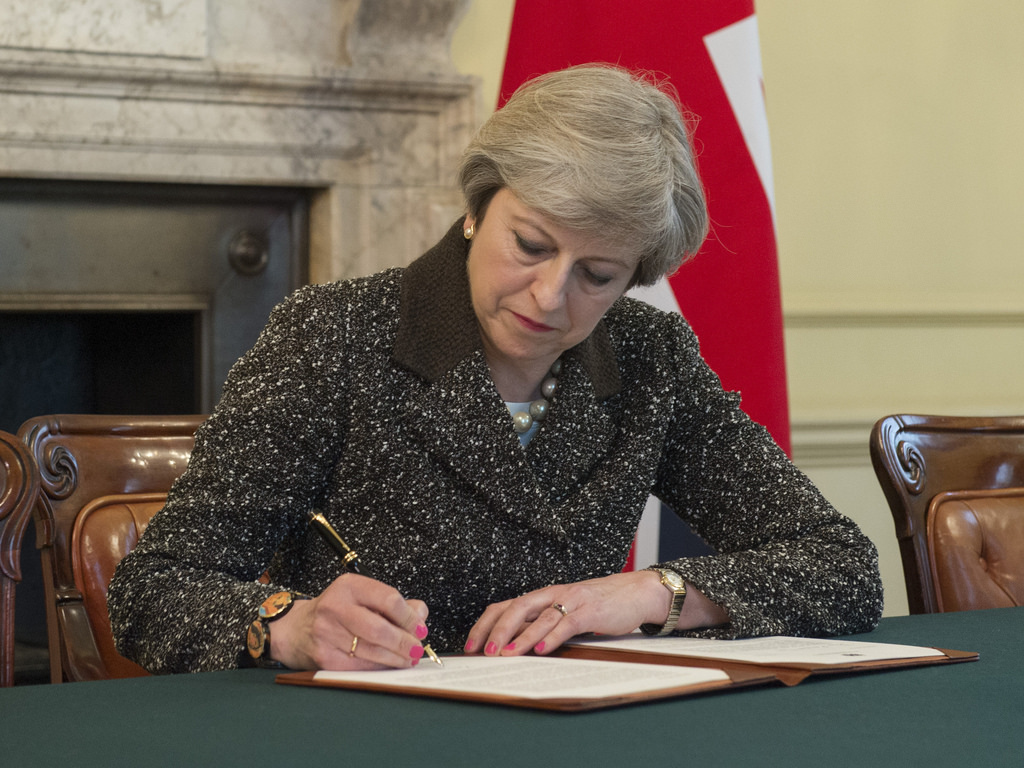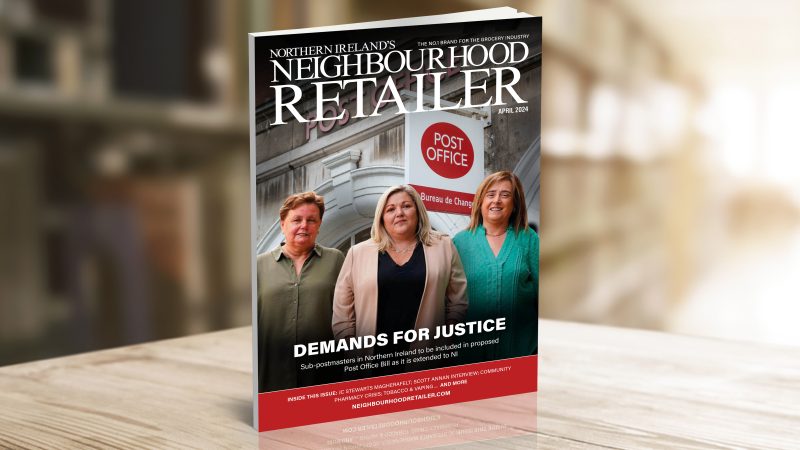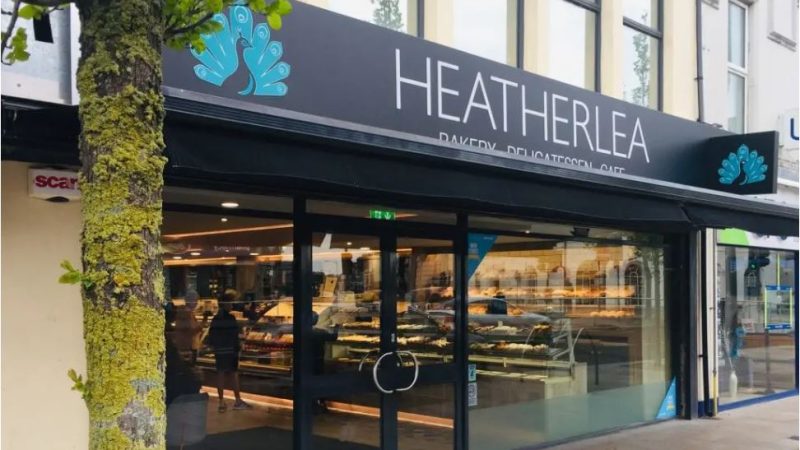Retailers ‘have real concerns’ over Brexit

The group representing Northern Irish independent retailers has said its members “have real concerns” as Prime Minister Theresa May officially began the process of the UK’s departure from the European Union on Wednesday.
The process was initiated by an historic letter from Mrs May notifying the EU of its intention to withdraw under Article 50 of the Treaty on European Union.
The letter, which sets in motion separation negotiations between the UK and the remaining 27 European member states, was received by European council president Donald Tusk.
However, many questions remain unanswered over the type of agreement being sought by the Government, the terms under which the UK will leave, and the arrangements that will remain in place between the trading partners.
The move comes as Northern Ireland’s political situation remains in stasis, with the main parties failing to agree terms for power-sharing.
Responding to the invocation of Article 50, Retail NI urged all political parties to “redouble their efforts” to secure a new administration.

The group’s chief executive Glyn Roberts said a new Assembly should establish a Brexit committee to scrutinise the process and take evidence from key sectors of civic society.
“Retail is Northern Ireland’s largest sector of the economy and our members on the border and many other areas and have real concerns for the future post Brexit,” he said.
“Triggering Article 50 is the start of a huge process of economic, social and political change for Northern Ireland and it remains to be seen if this change will be positive for our local economy. Certainly leaving the Single Market and Customs Union is positive neither for our retail sector or local economy as a whole.”
Mr Roberts said Northern Ireland’s retail sector also needed more certainty than what he described as “vague aspirations” for no return to a hard border between NI and the Republic, a scenario not ruled out by the UK Government.
“Not having an Executive in place to argue our case in these vital Brexit negotiations is clearly a major problem,” he added.

Meanwhile, Aodhán Connolly, director of the Northern Ireland Retail Consortium (NIRC) said ensuring consumers continued to enjoy quality, choice and value on goods depended on a continuation of tariff-free trade.
“Whether through reaching a new trading relationship quickly or securing a phased implementation deal, this must be at the heart of plans for a smooth and orderly Brexit,” he said.
Referring to NI’s border with the Republic, and therefore the UK’s only land border with the Eurozone, Mr Connolly said Brexit will potentially have a greater effect on Northern Ireland than anywhere else in the nation.
“Similarly, it will perhaps have a greater effect on the retail industry and consumer than on any other part of the UK,” he said.
“Many of our members have operations in Northern Ireland and the Republic of Ireland and even those who don’t are often reliant on goods, services and employees that traverse the border.”
“Every minute of waiting time at the border is the equivalent to £1 in costs. Which means any delays will have a significant cost impact on our members importing or exporting goods either directly or indirectly.”
Speaking about future trade agreements, Mr Connolly added that it was encouraging to read in Mrs May’s letter that Westminster recognised the UK has a role to play as a champion of free and open trade.
But the NIRC director said the priority should be to make sure trade terms with the EU are right before seeking new deals with other countries.
“Securing a positive new customs arrangement which enables mutually beneficial opportunities for trade with the EU and the rest of the world, will be crucial to ensuring Northern Ireland shoppers aren’t hit with the costs of unwanted import tariffs at a time when the pound is already weakened,” he said.
“Therefore, ensuring a phased implementation that will maintain a free and open trading environment until a new trade deal can be put in place is essential.”

Also commenting was Angela McGowan, CBI Northern Ireland director.
While she also welcomed the Prime Minister’s commitment to free trade, Ms McGowan said it is important the UK and the EU work closely to avoid a return to a hard border.
“Firms have been calling for the devolved nations to be better engaged in the Brexit process,” she said. “It’s important that the UK Government makes good on these commitments, particularly during this time of political instability in Northern Ireland.”
Ms McGowan added that the first six months of negations were “crucial” and that securing “early wins” was vital.
“Most welcome of all would be the immediate guarantee of the right to remain for EU citizens here and UK nationals in Europe, which all governments agree is desirable,” she said.
“Businesses will welcome the upfront commitment to an implementation period to rule out cliff-edges for firms on both sides of the border – though more detail will be needed. Meanwhile, we must work constructively to design a means to maintain some influence over regulations affecting local businesses in our biggest market.”







